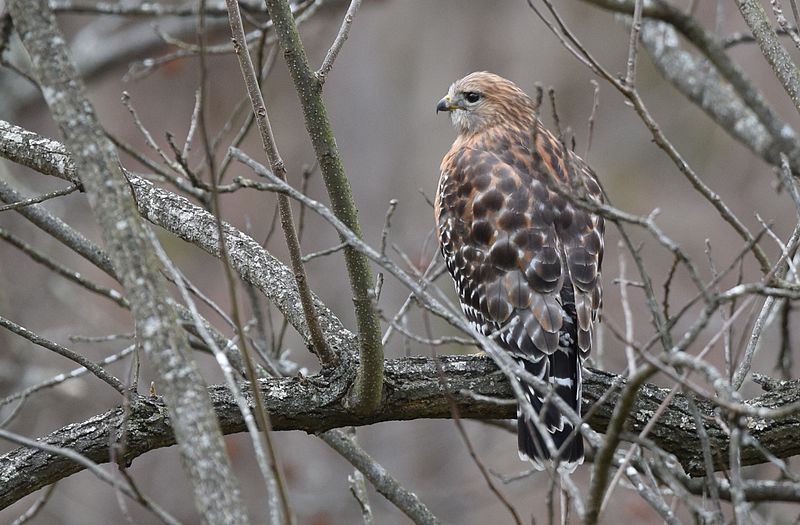
Image: "Red-shouldered Hawk, Rockwoods Reservation, 1/8/16", by Andy Reago & Chrissy McClarren, CC BY 2.0
Birders often carry binoculars, and many also use bird identification apps (see some free ones listed below), but neither are required. The most important thing is to be respectful of both birds and birders.
Remember the American Birding Association's code of ethics (see the link for the full code):
- Respect and promote birds and their environment.
- Respect and promote the birding community and its individual members.
- Respect and promote the law and the rights of others.
You can do some great birdwatching from your own window or backyard with a bird feeder. Once you have your feeder(s) set up, consider participating in these citizen-science research projects.
 Diagram of Winter Geographic Areas for Watch List Species, Partners in Flight
Diagram of Winter Geographic Areas for Watch List Species, Partners in Flight(page 23 of the 2016 Landbird Conservation Plan)
There are many bird apps out there; here are a few from reputable organizations.
The Birdability blog and related Audubon maps are by an American birder in a wheelchair, Virginia Rose, who's done a lot to promote and expand accessible birdwatching in the US.
While there have always been birders of every ethnicity, amateur birding and ornithology communities are predominantly white, and birders who identify as Black, Indigenous, and people of color (BIPOC) are sometimes subject to racist incidents. Such an event became national news in May 2020 when birdwatcher Christian Cooper was harassed by a racist white woman in Central Park. As a result, a number of Black birders came together to create the first #BlackBirdersWeek to call attention to the interest and expertise of BIPOC birders and nature lovers all over the US.
Big names in birding include Drew Lanham (Audubon posts, Birding While Black), Tykee James (Audubon posts, Wildlife Observer Network), Corina Newsome (@hood__naturalist), Day Scott (@thewildernessgoddess), Tyus Williams (@sciencewithtyus) and many others!
Learn more about #BlackBirdersWeek and the lack of diversity in birding:
Local (US):
